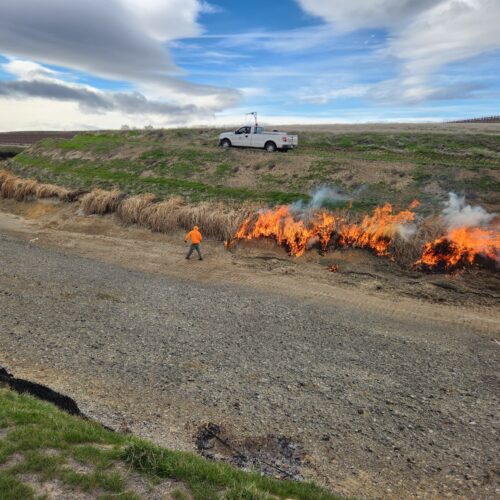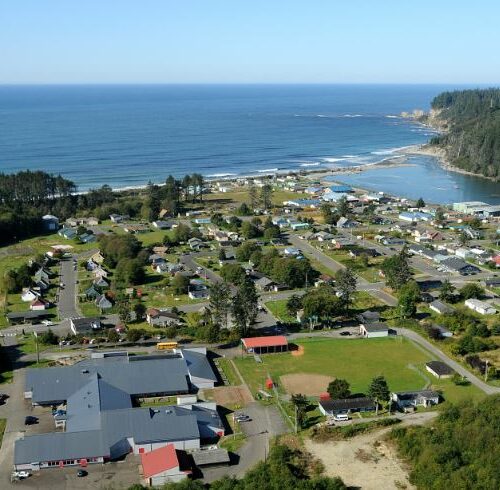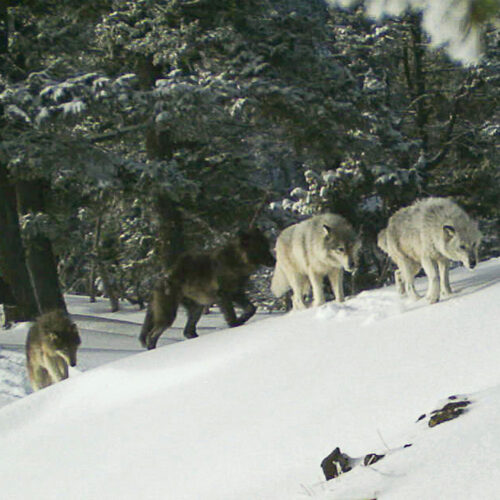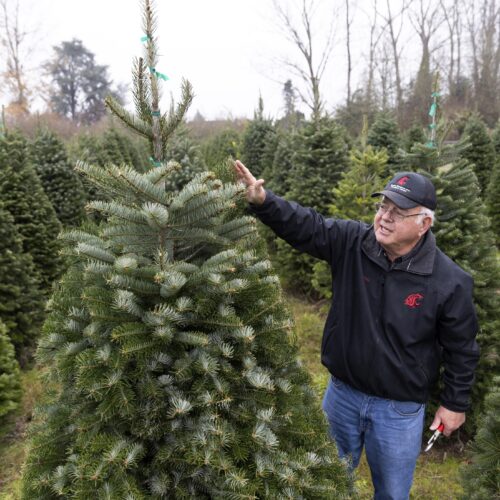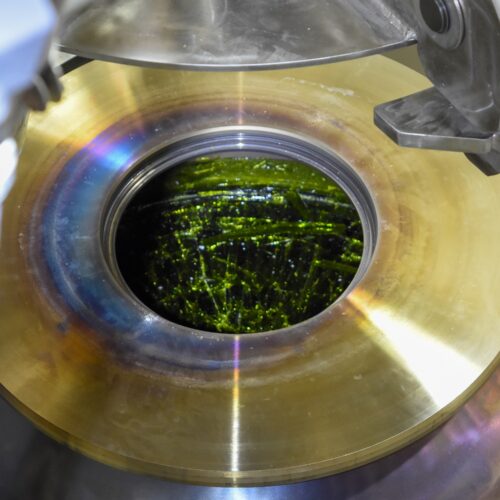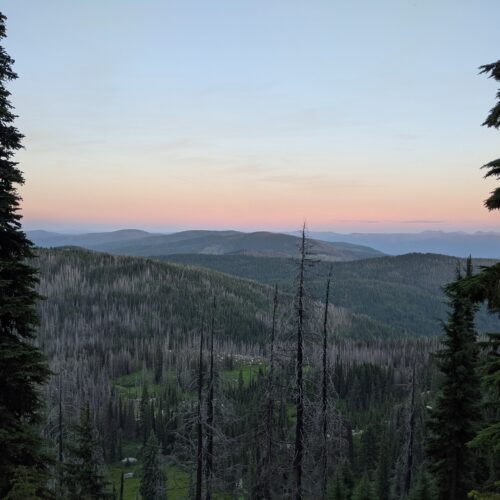Environment
Environment
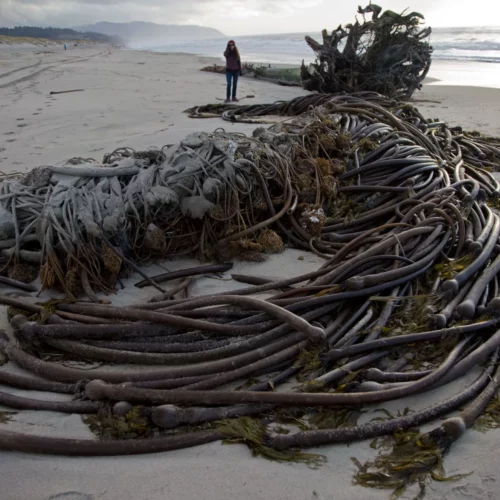
Struggling Northwest kelp forests sending out an SOS. Help is coming
There’s a rallying cry at various bays and beaches up and down the West Coast; it’s “Help the kelp!” The towering brown seaweed with the floating bulb on top is in steep decline. That’s alarming because underwater kelp forests provide shelter and food for a wide variety of sea life. The crew now answering the call runs the gamut from seaweed farmers to hammer-wielding scuba divers and might some day include sea otters and octopuses.
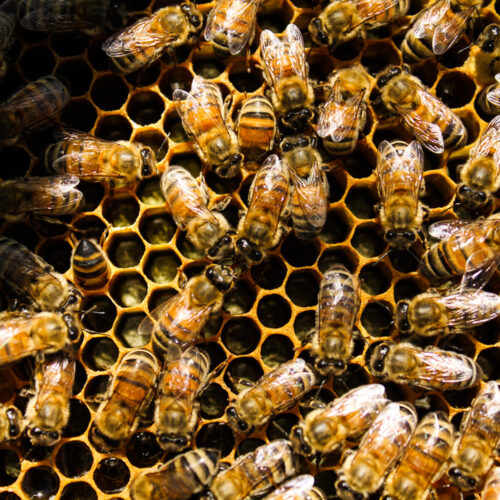
The buzz: New honey bee vaccine could protect pollinators, improve U.S. agriculture
The new honey bee vaccine from Dalan Animal Health is currently undergoing field trials to gather more data. (Credit: Dalan Animal Health) Listen (Runtime 1:07) Read Honey bees and other

Captive Returns Home: The Story Of Wetxuuwíitin – ‘Traverse Talks’ Episode 42 – With Chairman Samuel Penney
Photo of Sam Penney recording Traverse Talks at the Nez Perce National Historic Park on March 10, 2022. Imagine a stranger took your family’s heirlooms and then offered you an
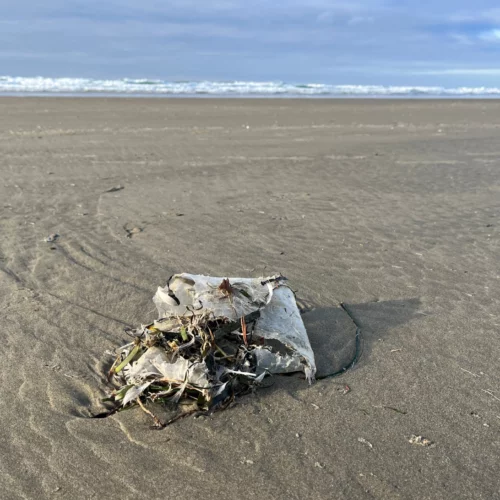
Foam dock floats, laundry filters, hotel shampoo amongst newest bids to reduce plastic pollution
Everywhere they look, Pacific Northwest scientists find teeny-tiny plastic pollution. Broken down particles are in our water, falling out of the air, in salmon, shellfish and in our own bodies. Scientists, environmental advocates and Democratic lawmakers in Olympia and Salem have seen enough to make them seek more regulations.
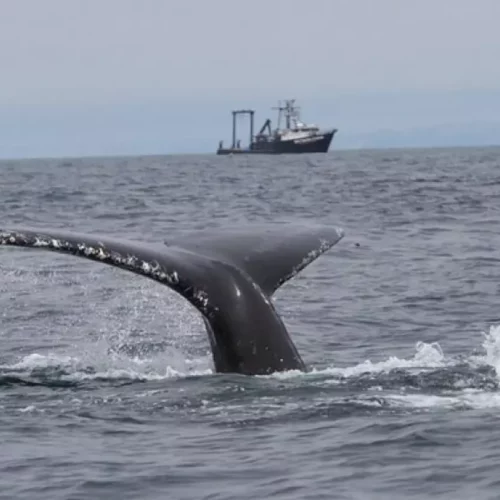
Lots of whales spotted around offshore wind farm zones along West Coast
The federal government has commissioned Oregon State University to look into the possible impacts of offshore wind farms on marine wildlife. In the first year of this four-year project, the researchers spotted sizable numbers of seabirds and whales — including the largest animal on Earth — in the Oregon and Northern California areas that could one day host floating wind farms.
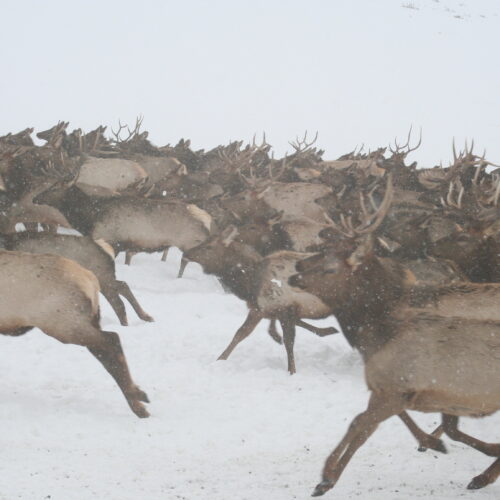
New USGS migration maps of Western wildlife might ease pressures from development and roads
Elk congregate on the Camp Creek Feed Ground in northwestern Wyoming. (Credit: USGS) Listen (Runtime 00:50) Read Lately, Matthew Kauffman has been thinking a lot about spaghetti – wildlife spaghetti
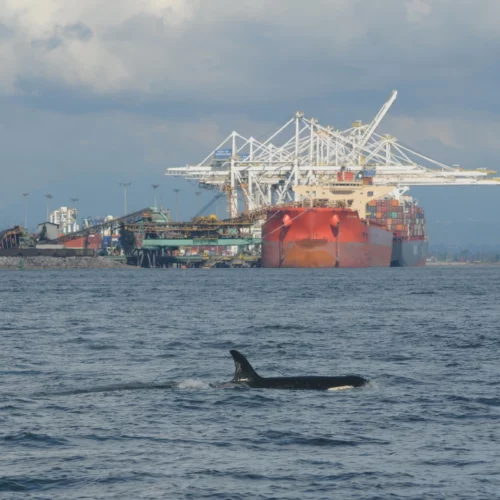
Captains of big ships eased up on the throttle during trial slowdown to help endangered orcas
The majority of captains of big commercial ships entering and leaving Puget Sound are cooperating with a request to slow down temporarily to reduce underwater noise impacts to the Pacific Northwest’s critically endangered killer whales. The duration of the experimental slowdown – modeled on a similar project in British Columbia – will be extended into the new year, organizers announced after a status report and celebration on the Seattle waterfront Friday.
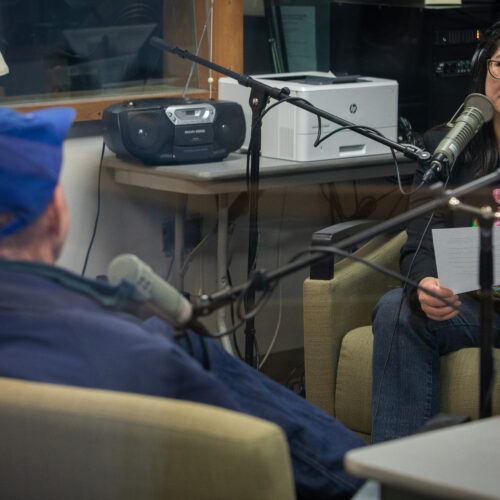
Tales Of A Weed Worker – ‘Traverse Talks’ Episode 39 – With Botanist Rich Old
Photo of Richard Old recording this episode of Traverse Talks across from Sueann Ramella. When you cross paths with a wild animal, oftentimes you notice it and recognize it by
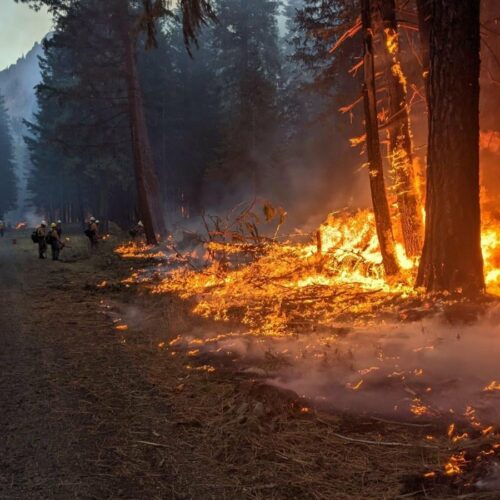
Studies show prescribed burns key to forest resiliency
Scientists are studying old wildfires to find what forest treatments slowed the flames – and what treatments didn’t work so well. Researchers are looking closely at the Schneider Springs fire, the largest wildfire in Washington in 2021.
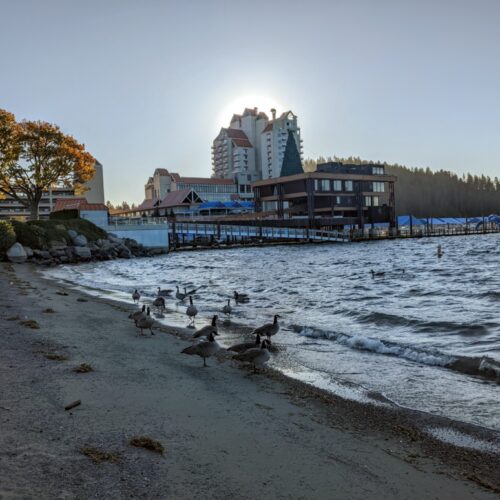
Coeur d’Alene Tribe pushing for greater protection of sacred lake
Geese congregate along the shore of Lake Coeur d’Alene, Nov. 5, 2022. Credit: Lauren Paterson / NWPB Listen For over 30 years, Native American Heritage Month has been federally-recognized. Northwest
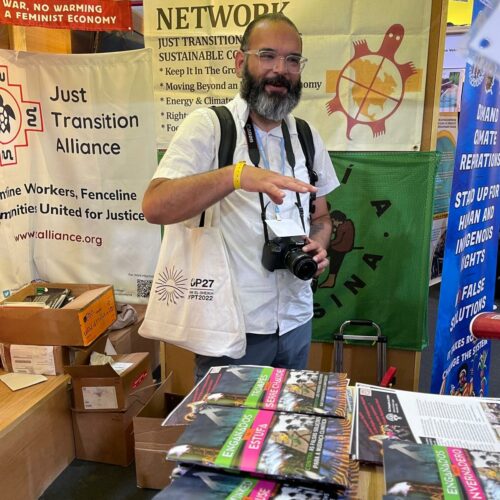
Defensor de trabajadores agrícolas de Washington presiona por la justicia climática en la COP27
El líder de los trabajadores agrícolas Edgar Franks durante la COP27. Crédito: Familias Unidas por la Justicia. Lea Los trabajadores agrícolas están presionando por la justicia climática en Washington y
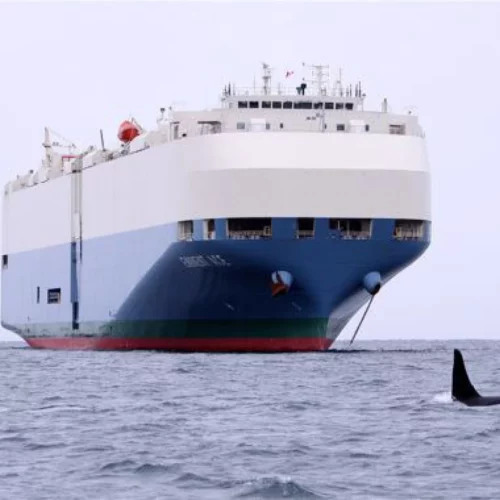
Reducing collisions between ships and whales? There’s apps for that, but they need work
Fortunately, it doesn’t happen very often in the Pacific Northwest that ships collide with whales. But when it does, it’s upsetting, tragic and the whale probably dies. Three separate teams have developed smartphone-based systems that can alert commercial mariners to watch out, slow down or change course when whales have been sighted nearby. A recent ride-along on a big container ship demonstrated that real-time whale alerts are still a work in progress.

